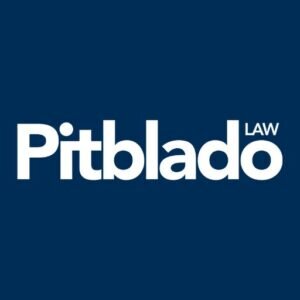Best Whistleblower & Qui Tam Lawyers in Winnipeg
Share your needs with us, get contacted by law firms.
Free. Takes 2 min.
List of the best lawyers in Winnipeg, Canada
About Whistleblower & Qui Tam Law in Winnipeg, Canada
Whistleblower and Qui Tam laws in Winnipeg, Canada are designed to protect and encourage individuals who report misconduct, typically related to fraud against the government. Qui Tam laws allow private individuals to file lawsuits on behalf of the government against entities that are defrauding it. In return, whistleblowers may receive a portion of the recovered damages. While Canada does not have a federal Qui Tam statute like the United States, various provincial laws provide protection to whistleblowers, ensuring they can report wrongdoing without fear of retaliation.
Why You May Need a Lawyer
Legal assistance can be crucial in navigating the complex legal landscape surrounding whistleblower and Qui Tam cases in Winnipeg. Common situations where legal assistance is beneficial include:
- Understanding and navigating the regulations and protections available under local and federal laws.
- Ensuring proper documentation and compliance with legal filing requirements.
- Protecting against retaliation from employers or other parties involved.
- Maximizing potential financial rewards from successful claims.
- Receiving guidance on the potential consequences and risks involved in blowing the whistle.
Local Laws Overview
The legal framework in Winnipeg encompasses several protections for whistleblowers under both federal and provincial statutes. Key aspects include:
- The Public Servants Disclosure Protection Act, which applies to federal public sector employees and provides mechanisms for reporting wrongdoing and protection from reprisal.
- Provincial legislation such as Manitoba's The Public Interest Disclosure (Whistleblower Protection) Act, which outlines processes for reporting and ensures protection for public employees.
- Common law protections against wrongful dismissal or retaliation in the private sector, although these may be less extensive.
- The need for whistleblowers to have reasonable belief in the truth and significance of the wrongdoing reported.
Frequently Asked Questions
What is a whistleblower?
A whistleblower is an individual who reports misconduct, illegal activities, or fraud, often within a workplace setting, to authorities who can take corrective action.
What qualifies as whistleblower activity?
Activities where an employee discloses evidence of breaches of law, unethical practices, health and safety violations, environmental harm, or financial fraud typically qualify as whistleblower activity.
Can a whistleblower remain anonymous?
While anonymity is often sought by whistleblowers, it can be challenging to maintain, especially when legal proceedings are involved. Legal counsel can advise on maintaining confidentiality when possible.
Am I protected from retaliation if I blow the whistle?
Yes, various laws protect whistleblowers from retaliation, including unfair dismissal or harassment. They vary by jurisdiction and specific circumstances, which is why legal counsel can be vital.
Can whistleblowers receive financial rewards?
Under some laws, particularly in the United States, whistleblowers can receive a percentage of the recovered amount in false claims cases. In Canada, similar rewards may be less prevalent.
Do whistleblower laws apply to private sector employees?
Whistleblower protections may extend to private sector employees, particularly concerning wrongful dismissal and other retaliatory actions, though specific protections can vary.
How do I file a whistleblower complaint in Winnipeg?
To file a complaint, you may contact the relevant ombudsman or administrative body responsible for investigation, such as the Manitoba Ombudsman or other appropriate authorities.
What should I do before blowing the whistle?
Before blowing the whistle, consider seeking legal advice to understand your rights, gather evidence, and assess the potential consequences and protections available to you.
What is a Qui Tam lawsuit?
A Qui Tam lawsuit involves a private individual suing on behalf of the government for fraud perpetrated against the government, with the possibility of sharing in any financial recovery.
Is there a time limit for filing a whistleblower claim?
Yes, there are often statutory deadlines for filing whistleblower claims. These limits vary based on the type of claim and jurisdiction, so timely legal action is essential.
Additional Resources
For individuals seeking more information or assistance with whistleblower and Qui Tam issues in Winnipeg, the following resources can be helpful:
- Manitoba Ombudsman
- Public Sector Integrity Commissioner (for federal cases)
- Provincial Human Rights Commission
- Legal Aid Manitoba
- Various employment law firms specializing in whistleblower cases
Next Steps
If you are considering whistleblowing or are involved in a Qui Tam case, it's advisable to consult with a legal professional experienced in whistleblower law. Start by documenting all relevant information and seeking a confidential consultation with an attorney who can guide you on the best course of action, help protect your rights, and navigate the legal complexities of your case.
Lawzana helps you find the best lawyers and law firms in Winnipeg through a curated and pre-screened list of qualified legal professionals. Our platform offers rankings and detailed profiles of attorneys and law firms, allowing you to compare based on practice areas, including Whistleblower & Qui Tam, experience, and client feedback.
Each profile includes a description of the firm's areas of practice, client reviews, team members and partners, year of establishment, spoken languages, office locations, contact information, social media presence, and any published articles or resources. Most firms on our platform speak English and are experienced in both local and international legal matters.
Get a quote from top-rated law firms in Winnipeg, Canada — quickly, securely, and without unnecessary hassle.
Disclaimer:
The information provided on this page is for general informational purposes only and does not constitute legal advice. While we strive to ensure the accuracy and relevance of the content, legal information may change over time, and interpretations of the law can vary. You should always consult with a qualified legal professional for advice specific to your situation.
We disclaim all liability for actions taken or not taken based on the content of this page. If you believe any information is incorrect or outdated, please contact us, and we will review and update it where appropriate.










